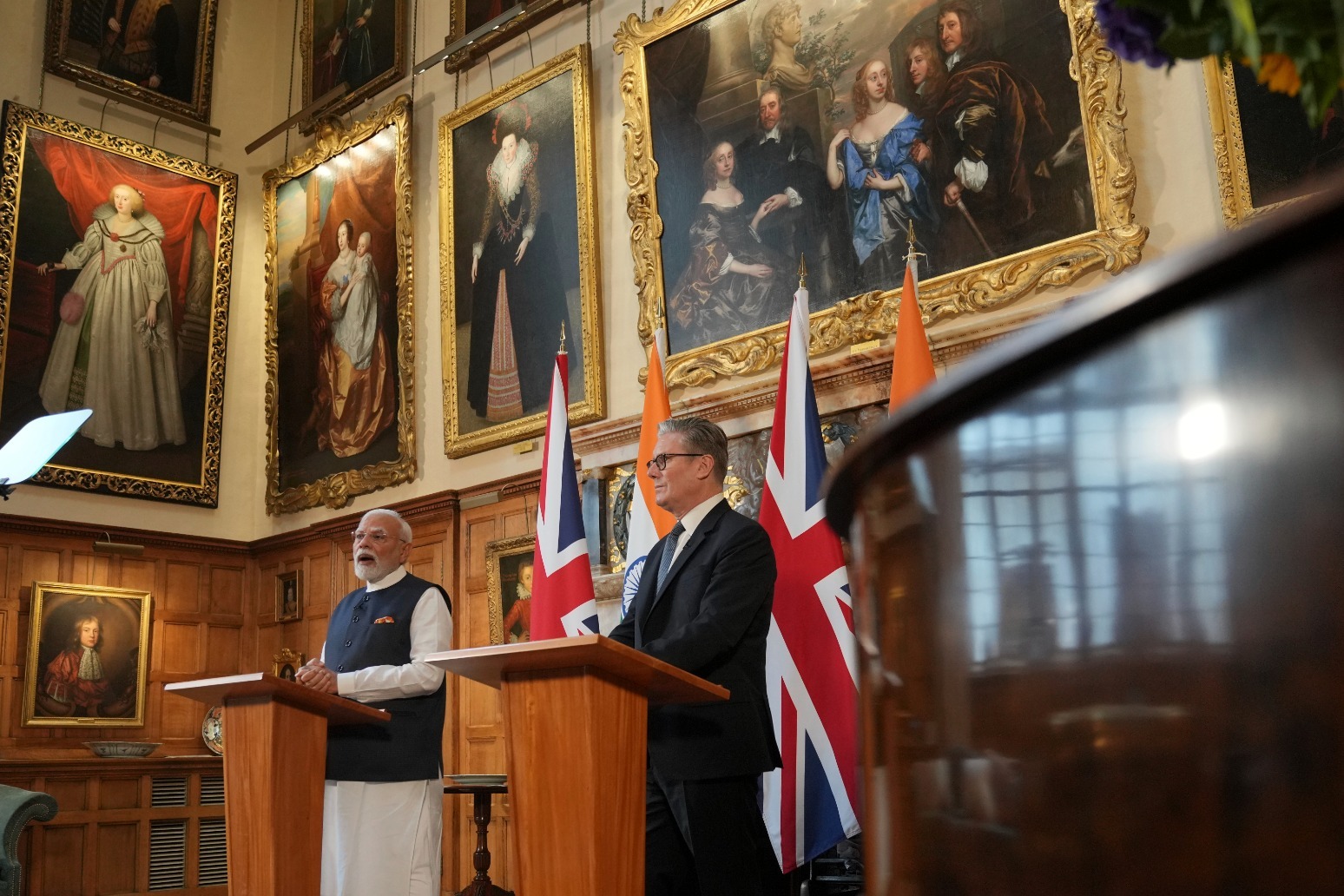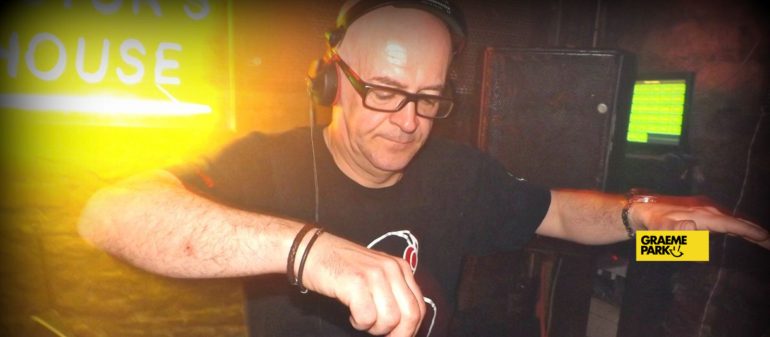Listeners:
Top listeners:
-
 play_arrow
play_arrow
Rother Radio (128K) Love Local, Love Music!
-
 play_arrow
play_arrow
Rother Radio (64K) Love Local, Love Music!
-
 play_arrow
play_arrow
Rother Radio (South Yorkshire) (64K) Love Local, Love Music!
-
 play_arrow
play_arrow
Rother Radio (South Yorkshire) (128K) Love Local, Love Music!
-
 play_arrow
play_arrow
Rother Radio (Doncaster) (64K) Love Local, Love Music!
-
 play_arrow
play_arrow
Rother Radio (Doncaster) (128K) Love Local, Love Music!
-
 play_arrow
play_arrow
Rother Radio Xmas Love Local, Love Music!
-
 play_arrow
play_arrow
Rother Radio – Special Announcement Love Local, Love Music!
Starmer hails ‘historic day’ as Modi visits for signing of UK-India trade deal
today24/07/2025


Sir Keir Starmer told Indian counterpart Narendra Modi the signing of a trade deal was a “historic day” for the two countries.
At the Prime Minister’s country residence Chequers, Sir Keir said the deal marked a “step change” in relations.
Mr Modi said they were “writing a new chapter” in the UK and India’s shared history.
The deal is set to be worth £6 billion in investment from Indian and UK companies into the British economy, and is expected to have a £4.8 billion impact on the UK’s gross domestic product (GDP).
The two leaders have also agreed to increase efforts to tackle illegal migration and organised crime.
Sir Keir said: “I’m really pleased and privileged to welcome you here today on what I consider to be a historic day for both of our countries, and the delivery of the commitment that we made to each other.”
Mr Modi, speaking via a translator, described the UK and India as “natural partners”.
Business Secretary Jonathan Reynolds and his Indian counterpart Piyush Goyal then formally signed the trade agreement in the great hall of Chequers.
At a joint press conference in the hall, Sir Keir was invited by Mr Modi to visit India in the near future.
The Indian prime minister also paid tribute to the British victims of the June plane crash outside of Ahmedabad airport, and described Britons of Indian origin as a “living bridge” between the two countries.
The ongoing England-India Test cricket clash is a “great metaphor for our partnership”, Mr Modi said, adding: “There may be a swing and a miss at times, but we always play with a straight bat.”
A brief translation error resulted in Sir Keir asking if he needed to repeat a section of his speech.
But Mr Modi indicated he understood, with Sir Keir replying: “I think we understand each other well.”
As their statements drew to a close and the two leaders began to leave the room, Mr Modi jokingly asked if Sir Keir would play the grand piano placed next to them.
Sir Keir, who is known to have played several musical instruments including the piano, laughed at the suggestion.
The UK-India trade deal is understood to be the largest of its kind for its economic impact on Britain.
It will see tariffs on an array of British goods reduced from an average of 15% to 3%, with the aim of boosting the £11 billion of imports into the south Asian nation.
Whisky tariffs will be slashed in half and will fall further over successive years, while other industries including soft drinks, cars and cosmetics are also expected to see cheaper duties.
Moves to ensure workers travelling between India and the UK can do so with ease, and protections for the environment and animal and plant health, are also part of the agreement.
A double contributions convention between India and the UK is also being negotiated, which would mean people moving between the two countries, and their employers, would only be required to pay tax in one nation.
The deal is expected to result in 2,200 jobs across the country and £6 billion investment by British and Indian businesses.
The UK and India are also bolstering co-operation on tackling corruption, fraud, organised crime and illegal migration, by sharing criminal records and other intelligence.
But the deal has not given the UK as much access as it would have liked to India’s financial and legal services industries.
The agreement promises some benefits for the UK’s financial services, with Chancellor Rachel Reeves understood to have pushed on behalf of the sector in discussions with her Indian counterpart.
But more wide-ranging access was not agreed, and talks continue on a bilateral investment treaty aimed at protecting British investments in India and vice versa.
The two nations also continue to discuss UK plans for a tax on high-carbon industries, which India believes could hit its imports unfairly.
Negotiations on the deal began when Boris Johnson was prime minister in 2022, and were concluded in May this year.
Shadow business secretary Andrew Griffith said it had only been made possible “because of Brexit delivered by the Conservatives”.
The Confederation of British Industry (CBI) has said that the signing “sends a powerful signal that the UK is open for business and remains resolute in its commitment to free and fair trade”.
Chief executive Rain Newton-Smith added: “A trade agreement with India – one of the world’s fastest-growing economies – is a springboard for long-term partnership and prosperity. UK firms can take advantage of this new platform to scale, diversify and compete on the global stage.”
Though the final text of the deal has been agreed, steps to bring it into law now need to be taken, including its ratification in Parliament.
Published: by Radio NewsHub
Written by: Radio News Hub
Similar posts
Now Playing
Now playing: -
On Air Now

Graeme Park
The Best In House, Dance and Old Skool!
Join DJ legend Graeme Park for all the best House and Dance Music every Friday night!
closeSponsored
Weather
Upcoming Local Event
Latest from Facebook
Search Rother Radio
Contact Us
- https://www.rotherradio.co.uk
- 01709 257 175
- studio@rotherradio.co.uk
About Us
Rother Radio – Love Local, Love Music! → Discover more
Our Partners
Rother Radio is owned by Rotherham Broadcasting CIC







